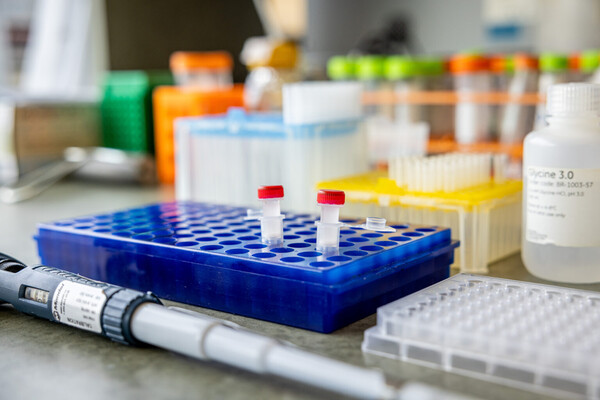Main Second Level Navigation
Aug 4, 2023
U of T Researchers Receive Funding for Projects on Genetics, Computational Biology and Drug Discovery
Artificial Intelligence, Drug Discovery, Faculty, Gene Editing, Genetic Interactions, Research Funding

Faculty members (left to right) Brenda Andrews, Artem Babaian, Andrew Fraser and Philip M. Kim



